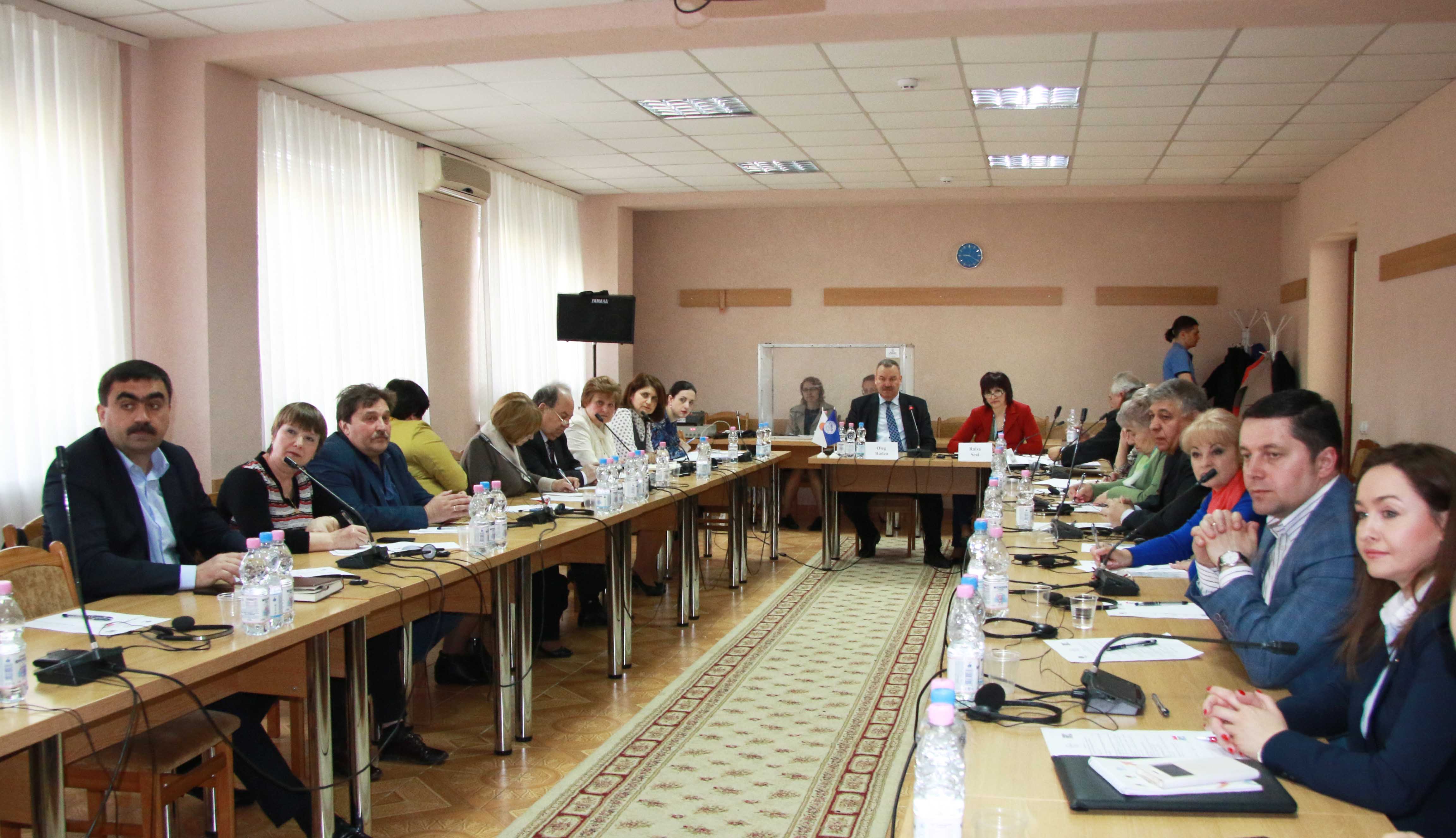Social partners stressed that the decline in the informal economy will contribute to improving the social protection system in Moldova
Tuesday, April 4th, the National Trade Union Confederation of Moldova (CNSM), in collaboration with the Pan-European Regional Council (PERC) of the International Trade Union Confederation (ITUC), Friedrich-Ebert-Stiftung Foundation organized a workshop with the participation of social partners and international experts to discuss the particularities of pension system reform, and how, by combating the informal economy can be improved the social-protection system.
Oleg Budza, CNSM president, said that unfortunately, not all trade union proposals were taken into account in reforming the pension system and further CNSM will insist on amending certain sensitive aspects of the reform.
“Demographic indicators show that life expectancy in our country is very low and working conditions are not the best. We must find solutions to increase wages. Trade unions for many years beat the alarm about more than worrying proportions the informal economy phenomenon has reached. If reduced this phenomenon, we could more easily find ways to increase wages in various sectors of national economy,” said the trade union leader.
Raisa Scai, Deputy Minister of Labour, Social Protection and Family, mentioned that making the pension system reform was a necessity because there were many risks that could affect the operation of this system.
“It’s a difficult situation when 1.1 employees ensure a pensioner, the more we are in a process of population aging. Another problem is that a large part of employees does not contribute to social insurance budget, because they work in the informal economy. To achieve real progress it is necessary that all social partners and society contribute to the improvement of working and living conditions of the citizens”, said Raisa Scai.
In this context, Sergiu Sainciuc, vice president of CNSM, said that the austerity of the state budget is directly related to the issue of the shadow economy, tax evasion, failure to meet the safety and health at work norms.
“If this phenomenon could be countered and reduced, there would certainly be identified sources to increase salaries, better pensions, a better social security system, infrastructure development, improvements in medicine and education system,” he added.
Referring to reforming the pension system, Sergiu Sainciuc presented a comprehensive comparative analysis of the proposals previously submitted by trade unions, the proposals of international expert Martin Hutsebaut and the final provisions of the reform adopted by the authorities, where were mentioned main aspects of this reform.
Martin Hutsebaut, Belgian expert, presented his views on the pension system reform, but also the phenomenon of the informal economy – as it can be contained and could be applied in Moldova from international experience.
“The main reason why the phenomenon of the informal economy in Moldova has reached immense proportions is not just economic. The main factor that led to this is the lack of public confidence in their ability to solve existing social and economic problems and attitude of the individual towards the state. There is a certain mentality to be overcome. Citizens will understand that if they do not make such payments to the budget, they will not have a quality social protection system. Future generations will not forgive you if you continue to live by models applied today”, said Martin Hutsebaut.
The expert noted that there are needed reforms in the tax system, so as to increase certain categories of taxes, and people who do not comply to the law to be punished severely. “The reform of the pension system is continuously changing, and the authorities will take into account that in the future will have to support even more the social insurance system”, he added.
Vladislav Caminschi, executive director of the National Confederation of Employers of Moldova, Chairman of the Working Group to reduce informal employment and the phenomenon of “wages in envelopes” in the Economic Council under the Prime Minister Pavel Filip, said that now they are developing an action plan that would help combat the informal economy and assured that these practices will be implemented from August 2017.
Anna Salnikova, programme and campaign coordinator at ITUC / PERC, told the participants about practices implemented at international level, through information campaigns, to weaken the “corporate greed” and reduce the informal economy.
“Often we see that in the countries of origin, transnational companies have good behaviour, comply with the law, international standards, workers’ rights. But when they come to other markets, they restrict workers’ right to join and form trade unions, allow illegal practices, grant wages “in envelopes”. To counter these abuses it is necessary that employees know their rights and the relevant institutions to monitor closely their compliance”, says the ITUC/PERC representative.
Those present also discussed on the role of social partners in the implementation of reforms on social and economic needs of the population and international trends.
Department of mass media and international relations



